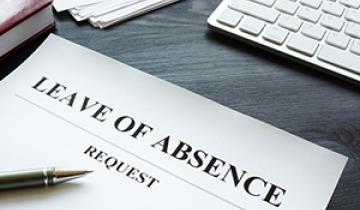After a nine-year legislative journey and two previous vetoes by prior administrations, President Clinton signed the Family Medical Leave Act (FMLA) into law in February 1993. According to a 2018 FMLA survey, roughly 56 percent of U.S. employees are eligible for up to 12 weeks of unpaid, job-protected leave in a 12-month period under this law.
After 30 years, it would be easy to assume that employers have FMLA administration conquered. Still, it remains a vexing and challenging law to comply with. It is filled with broad swathes of gray areas and uncertainty—particularly related to intermittent leaves and FMLA’s intersection with the Americans with Disabilities Act (ADA). Recent notable FMLA litigation resulted in a $2.8 million arbitration award to an employee in the Washington, D.C., area. A Massachusetts trial court awarded $1.3 million to an employee who was terminated for taking a vacation while on FMLA. In both cases, statements made by managers and human resources, combined with knee-jerk reactions to the circumstances, increased employee awards. These results point to the need to train your managers, on handling requests for FMLA, and involve HR early in the process.
As we look at what the next 30 years may bring, perhaps we need only look at what Congress has on its agenda. Several senators are encouraging President Biden to include a provision in the 2024 budget to fund 12 weeks of paid leave. Similar provisions, although reduced to only four weeks of paid leave in past years’ budgets, were ultimately removed to allow for the bipartisan support needed to pass. Should paid leave provisions be passed by Congress, the United States will no longer be one of the seven United Nations countries without any form of national paid leave.
As employers navigate the changing workplace and the need to support employees through various life stages, paid leaves make sense. Whether it is a parent adjusting to life with a new baby or an employee dealing with a life-changing illness or caring for a family member, paid leave will help alleviate one less stressor–worrying about how bills will be paid. However, it must be done without overburdening businesses either financially or administratively. Once again, we will walk the tightrope!
MRA has excellent FMLA resources. Our FMLA Toolkit is jam-packed with helpful tools, forms, and sample documents to assist in administering leaves.
Our HR Hotline Advisors are here to help 24/7 at 866-HR-Hotline (866.474.6854) or email [email protected].




